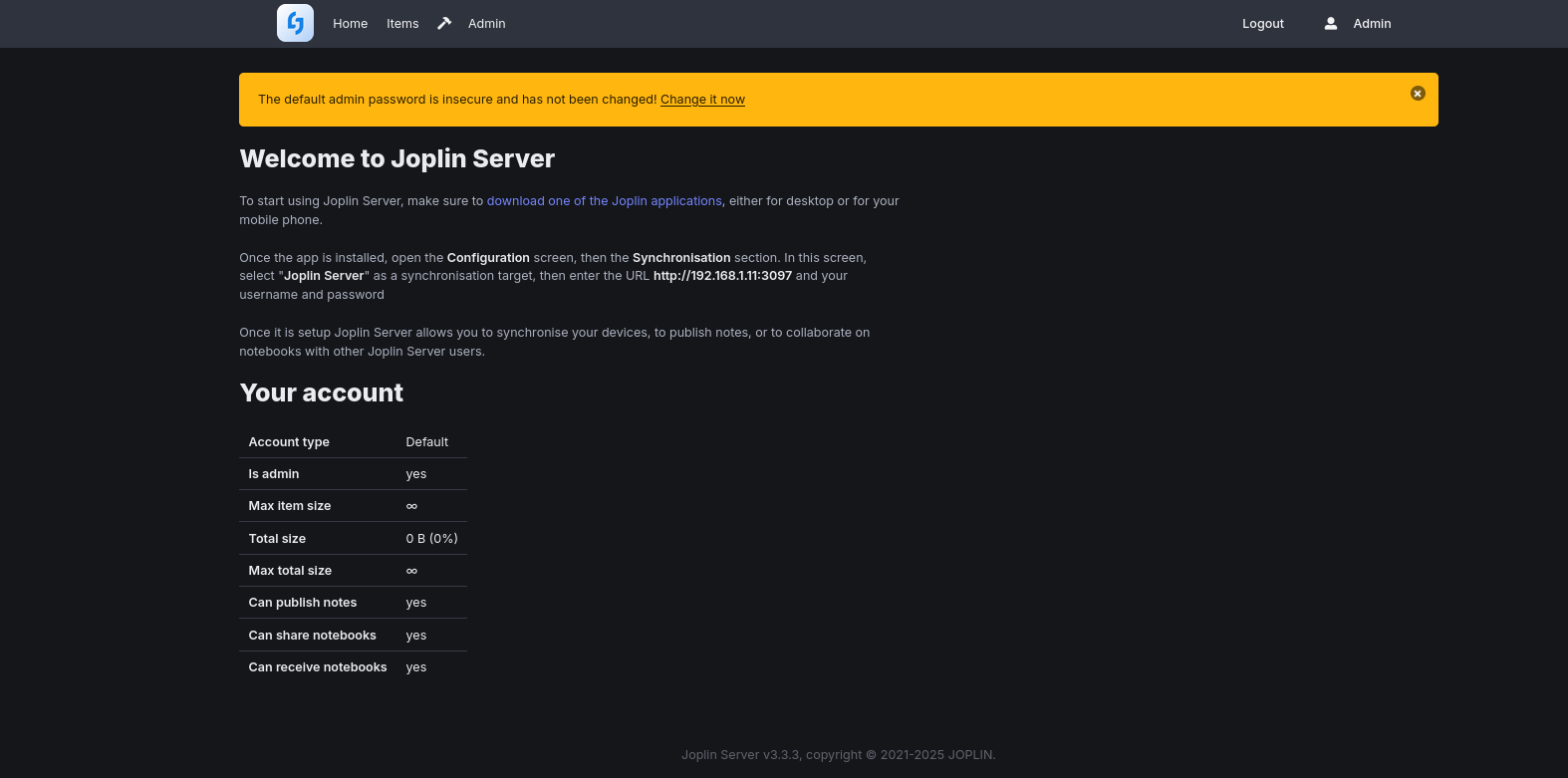Discover how to self-host Joplin Server using Docker Compose to maintain complete control over your notes, syncing, and data privacy.
This guide explores the Joplin project’s architecture, modules, and dependencies, providing a step-by-step overview of deploying a robust, scalable, secure, and open source flexible note-taking solution on your own infrastructure.
Project Overview: Joplin
Joplin is a powerful, open source note-taking and to-do application that supports Markdown formatting, end-to-end encryption, and synchronization across desktop, mobile, and web platforms.
- With rich plugin support and a self-hostable server component, Joplin offers a flexible solution for users seeking full data ownership.
Why This Is Important
- 🔒 Data privacy and security at your fingertips
- 🌐 Cross-platform synchronization without third-party clouds
- ⚙️ Highly customizable via plugins and themes
- 🏠 True self-hosting for full control over infrastructure
- 🚀 Scalable architecture for personal or team use
Tech Overview: Joplin
At its core, Joplin leverages a monorepo structure with TypeScript and JavaScript-driven modules.
It uses Electron for desktop apps, React Native for mobile clients, and Node.js/Express for the server.
- Static analysis and testing are enforced via ESLint and Jest.
- Configuration is managed through
.envfiles and JSON schemas. - Configurable via docker container
Modules Descriptions
- packages/server: Backend API for synchronization and storage, supporting SQLite and PostgreSQL, with optional filesystem or S3 storage drivers.
- packages/app-desktop: Electron-based desktop client delivering a rich Markdown editor and E2EE sync.
- packages/app-mobile: React Native applications for iOS and Android.
- packages/app-cli: Command-line tooling for note import/export and automated tasks.
- packages/plugins: Ecosystem for user-created extensions and themes.
- packages/utils & lib: Shared utilities and core libraries used across modules.
Key Concepts and Algorithms
Joplin’s synchronization model implements a delta-based sync algorithm, minimizing data transfer by tracking changesets.
End-to-end encryption utilizes AES-256 and secure key derivation to protect content.
The server maintains versioned items, enabling conflict resolution and fallback storage drivers for seamless migrations.
Dependencies
- Node.js & npm/yarn
- Electron
- React & React Native
- SQLite3 & PostgreSQL
- Express
- Knex.js (SQL query builder)
- Webpack & Babel
- ESLint & Jest
Deployment Self-Hosting: Joplin
Selfhosting Joplin Server empowers you to run your own synchronization backend, ensuring no third-party holds your data.
The official Joplin Docker image simplify deployment and maintenance.
Deploying Joplin Server with Docker Compose
- Clone the repository and navigate to its root:
git clone https://github.com/laurent22/joplin.git
cd joplin
- Copy the environment sample
.env-sampleand configure variables:
cp .env-sample .env
# Edit .env to set POSTGRES_USER, POSTGRES_PASSWORD, POSTGRES_DATABASE, APP_BASE_URL, etc.
- Launch services:
docker-compose -f docker-compose.server.yml up -d
Example docker-compose.server.yml to SelfHost Joplin:
We need two services:
- The Joplin Container
- An additional SQL DB (postgres)
Just use the following docker stack:
#version: '3.3'
services:
app: #https://joplinapp.org/
image: joplin/server:latest #https://github.com/laurent22/joplin
depends_on:
- db
ports:
- "3097:22300" #http://192.168.1.11:3097/login
restart: unless-stopped
#env_file: .env
environment:
- APP_PORT=22300
- APP_BASE_URL= 192.168.1.11 #${APP_BASE_URL} # IP/URL
- DB_CLIENT=pg
- POSTGRES_PASSWORD=password
- POSTGRES_DATABASE=joplin
- POSTGRES_USER=user
- POSTGRES_PORT=5432
- POSTGRES_HOST=db
db:
image: postgres:13
volumes:
- /home/Docker/joplin/data/postgres:/var/lib/postgresql/data
ports:
- "5432:5432"
restart: unless-stopped
environment:
- POSTGRES_PASSWORD=password
- POSTGRES_USER=user
- POSTGRES_DB=joplin
Go to http://192.168.1.11:3097/login to enter Joplin UI:

The out-of-the-box Joplin Server ships with a single admin account:
• Email: admin@localhost • Password: admin
After which you see:

BONUS: Joplin supports mermaidJS for notes!
Service Breakdown:
- db: PostgreSQL database for storing note metadata and content (default port 5432).
- app: Joplin Server API, handling sync requests on port 22300.
Configuration: Modify .env entries to change database settings, base URL, storage driver, and fallback options.
Conclusion
We’ve explored how to deploy and customize Joplin, an open source self-hosted note-taking solution, using Docker Compose.
Whether you prioritize privacy, customization, or extensibility, Joplin delivers a robust platform.
Alternatives include Trilium Notes, Standard Notes, Wiki.js, and Nextcloud Notes for different self-hosting needs.
Latest Releases
- server-v3.3.13: Improved performance for note syncing and database queries.
- server-v3.3.12: Fixed storage migration and database fallback issues.
- server-v3.3.11: Enhanced logging and error messages.
- server-v3.3.10: Added support for AWS S3 storage integration.
- server-v3.3.9: Security patches and updated dependencies.